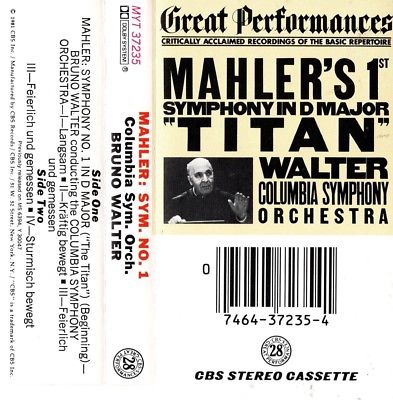Progarchives.com has always (since 2002) relied on banners ads to cover web hosting fees and all.
Please consider supporting us by giving monthly PayPal donations and help keep PA fast-loading and ad-free forever.
/PAlogo_v2.gif) |
|
Post Reply 
|
| Author | ||
Rick Robson 
Forum Senior Member 

Joined: September 03 2013 Location: Rio de Janeiro Status: Offline Points: 1607 |
 Topic: 3 little gems Topic: 3 little gemsPosted: May 02 2015 at 16:13 |
|
|
I chose just three compositions in which there are recurrent emotional expressions of ferocity often unbridled in many fast arpeggios and strongly accented notes, creating the sense of a very powerful sound as well as some air of sheer epicness, an effective performance of them demands lively and skillful playing. Chopin - Étude Op. 10, Nr. 12 in C minor ("Étude on the Bombardment of Warsaw" or "Revolutionary Étude"): https://www.youtube.com/watch?v=w2vLEQno9Ks&feature=player_detailpage (Maurizio Pollini) Beethoven - Piano Sonata Nr.32 in C minor, Op. 111 (i_maestoso-allegro con brio e appassionato): https://www.youtube.com/watch?v=_6YEan3UEdU&feature=player_detailpage (Maurizio Pollini) or https://www.youtube.com/watch?v=t7xzxkW7RRU&feature=player_detailpage (Claudio Arrau - entire sonata)
Edited by Rick Robson - May 02 2015 at 16:27 |
||
 "Music is a higher revelation than all wisdom and philosophy." LvB |
||
 |
||
Rick Robson 
Forum Senior Member 

Joined: September 03 2013 Location: Rio de Janeiro Status: Offline Points: 1607 |
 Posted: May 02 2015 at 18:29 Posted: May 02 2015 at 18:29 |
|
|
1) Bela Bartok - Allegro Barbaro BB 63 (Sz. 49):
Composed in 1911, one of Béla Bartók's most famous and frequently performed solo piano pieces. The composition is typical of Bartók's style, utilizing folk elements. The work combines Hungarian and Romanian scales; Hungarian peasant music is based on the pentatonic scale, while Romanian music is largely chromatic. Allegro barbaro is a short, dance-like composition, that at first sounds like it's free composed. However, one can begin to find traditional structure to the piece by looking at the harmony. Allegro barbaro is in ternary form, which means that there are two distinct themes, but one is presented twice. To keep the edge of freedom and wild force, Bartók frequently breaks the flow of Allegro Barbaro in a peremptory way to scare us a little with a potential for violence. The piece was performed in private by Bartók many times by memory before he even started to notate the music. In many early printed versions of the composition, the tempo markings were indicated at a much slower speed. These indications would confuse musicians because the recordings of Bartók performing his own composition was much faster than indicated. Also, many times certain accents and dynamics would be performed by the composer, but would not make it to paper because each performance wasn't the same. Allegro barbaro is a frequent choice of students to orchestrate, in particular for their college studies. There are no standard, famous orchestrations for a large ensemble. |
||
 "Music is a higher revelation than all wisdom and philosophy." LvB |
||
 |
||
Rick Robson 
Forum Senior Member 

Joined: September 03 2013 Location: Rio de Janeiro Status: Offline Points: 1607 |
 Posted: May 03 2015 at 05:52 Posted: May 03 2015 at 05:52 |
|
|
2) Frédéric Chopin - Étude Op. 10, Nr. 12 in C minor ("Étude on the Bombardment of Warsaw" or "Revolutionary Étude"):
The 12th Étude appeared around the same time as the November Uprising in 1831, Chopin poured his emotions on the matter into many pieces that he composed at that time, the "Revolutionary Étude" standing out as the most notable example. Upon conclusion of Poland's failed revolution against Russia, he cried "All this has caused me much pain. Who could have foreseen it!" The length and the repetition of its rapid passages distinguishes the Revolutionary from other Études, unlike études of prior periods (works designed to emphasize and develop particular aspects of musical technique), the romantic études of composers such as Chopin and Liszt are fully developed musical concert pieces, but still continue to represent a goal of developing stronger technique. |
||
 "Music is a higher revelation than all wisdom and philosophy." LvB |
||
 |
||
Rick Robson 
Forum Senior Member 

Joined: September 03 2013 Location: Rio de Janeiro Status: Offline Points: 1607 |
 Posted: May 03 2015 at 06:27 Posted: May 03 2015 at 06:27 |
|
|
3) Ludwig van Beethoven - Piano Sonata Nr.32 in C minor, Op. 111:
Written between 1821 and 1822, it is the last of Beethoven's Piano Sonatas and one of his last compositions for piano. This work, like other "late period" sonatas, contains fugal elements and comprises just two movements, unlike his other sonatas. It was dedicated to his friend, pupil, and patron, Archduke Rudolf. Chopin greatly admired this Beethoven's sonata. In two of his works, the famous second Piano Sonata (The Funeral March) and the Revolutionary Étude (written in the same key as Beethoven's), Chopin alluded to the opening and ending of this Beethoven's sonata's first movement (i.maestoso-allegro con brio e appassionato), respectively: compare the opening bars of their two sonatas, and bars 77-81 of Chopin's Etude with bars 150-152 in the first movement of Beethoven's sonata). Though the range of timings for the first movement of the Piano Sonata Nr.32 is wide, typical performances of it take 9 to 10 minutes. And for the second movement, 15 to 18 minutes, but there are a few recordings that take more than 20 minutes for it, e.g. Barenboim (21 minutes), Afanassiev (22 minutes) and Ugorski (27 minutes). Prokofiev based the structure of his Symphony No. 2 on this Beethoven's sonata. |
||
 "Music is a higher revelation than all wisdom and philosophy." LvB |
||
 |
||
ExittheLemming 
Forum Senior Member 

Joined: October 19 2007 Location: Penal Colony Status: Offline Points: 11415 |
 Posted: May 03 2015 at 06:45 Posted: May 03 2015 at 06:45 |
|
|
Voted for the Bartok piano piece. Apart from the very famous ELP adaptation on the trio's debut album there is another version by uber obscure Hingarian prog band Panta Rhei which (if you can find a copy) is well worth tracking down (although the recording quality leaves much to be desired)
http://www.progarchives.com/album.asp?id=11674 |
||
 |
||
Rick Robson 
Forum Senior Member 

Joined: September 03 2013 Location: Rio de Janeiro Status: Offline Points: 1607 |
 Posted: May 03 2015 at 14:11 Posted: May 03 2015 at 14:11 |
|
Indeed, it's a beautiful performance, it felt even more dramatic for the impression it gave me of more stress in the use of a slower timing (especially the first and last sections) even though in fact it's just slightly slower, and a more prominent drumming as well, but overall by no means it can beat the sheer strenght of ELP's The Barbarian, and also everytime I listen to that Emerson's brillliant take on the piano section I say to myself: "This wonder can be no other but Keith Emerson!" Edited by Rick Robson - May 03 2015 at 14:12 |
||
 "Music is a higher revelation than all wisdom and philosophy." LvB |
||
 |
||
Rick Robson 
Forum Senior Member 

Joined: September 03 2013 Location: Rio de Janeiro Status: Offline Points: 1607 |
 Posted: May 03 2015 at 14:22 Posted: May 03 2015 at 14:22 |
|
|
My vote is for Beethoven's (as expected
When it comes to a second vote it is hard for me to choose, but Chopin (as usual) manages again to impact me with a feeling of continuous suspense before bursting into the final notes, besides his inner and intimate emotional expressions in the increasing tensious melodic lines, he often brings me that. However, Allegro Barbaro also brings me somehow those feelings, but in its own impressive way. Edited by Rick Robson - May 03 2015 at 14:25 |
||
 "Music is a higher revelation than all wisdom and philosophy." LvB |
||
 |
||
JD 
Forum Senior Member 

Joined: February 07 2009 Location: Canada Status: Offline Points: 18371 |
 Posted: May 03 2015 at 20:10 Posted: May 03 2015 at 20:10 |
|
Which brings to mind... Lead, Follow or Get out of the way! |
||
|
Thank you for supporting independently produced music
|
||
 |
||
presdoug 
Forum Senior Member 

Joined: January 24 2010 Location: Canada Status: Offline Points: 8068 |
 Posted: May 03 2015 at 20:28 Posted: May 03 2015 at 20:28 |
|
|
The Beethoven for me, Ric! And Claudio Arrau is the master at playing Beethoven. (also Artur Schnabel)
|
||
 |
||
Rick Robson 
Forum Senior Member 

Joined: September 03 2013 Location: Rio de Janeiro Status: Offline Points: 1607 |
 Posted: May 03 2015 at 21:51 Posted: May 03 2015 at 21:51 |
|
|
Right on Doug, Claudio Arrau is indeed a Beethoven's especialist, he is so incredibly talented that I consider him also a master at playing Chopin - some of my favourites are also performed by him. Don't know Artur Schnabel though.
Another great Beethoven performer that I enjoy as much is Alfred Brendel, and interesting that he cites the conductors Bruno Walter and Wilhelm Furtwängler as particular influences. Also worth checking out Alfred Brendel's three complete sets of the Ludwig van Beethoven piano sonatas (one on Vox Records and two on Philips Records), he performed many cycles of the Beethoven Sonatas and Concertos, and is also a master at playing Mozart piano concertos - I will be such a happy man when I get to purchase this complete set as well, it was recorded with Sir Neville Marriner and the Academy of St Martin in the Fields, which is included in the Philips 180 CD complete Mozart Edition. |
||
 "Music is a higher revelation than all wisdom and philosophy." LvB |
||
 |
||
Post Reply 
|
|
| Forum Jump | Forum Permissions  You cannot post new topics in this forum You cannot reply to topics in this forum You cannot delete your posts in this forum You cannot edit your posts in this forum You cannot create polls in this forum You cannot vote in polls in this forum |